
Domestic violence remains a topic surrounded by misconceptions and half-truths. Many people have a narrow view, limiting it to just physical altercations between couples. However, domestic violence includes a range of behaviors that harm, threaten, or control a partner or family member. Understanding this broader perspective is crucial. This is particularly true if faced with accusations of abusive behaviors.
In the realm of the law, domestic violence is approached with seriousness and depth. It does not limit itself to punches or slaps. Emotional abuse, sexual abuse, psychological abuse, physical violence, and other forms of abusive behavior can also be included under its umbrella. At The Law Offices of Frances Prizzia, we understand how serious accusations of domestic abuse and intimate partner violence can be. You need the most vigorous defense possible if you have been accused of domestic violence. Learn more about these accusations below, and give us a call to schedule a case consultation.
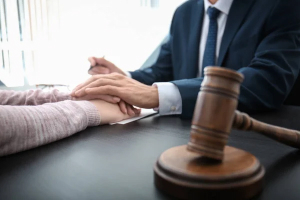
Accusations of domestic violence are not limited to physical abuse. They encompass any behavior that intimidates, manipulates, or controls another person in an intimate relationship. Domestic violence affects people in many ways, and accusations come in many forms. This includes sexual violence, violence against women, and other violent behavior.
It would help if you also approached these accusations with an informed mind. Not every claim of domestic violence results from actual malicious intent. Sometimes, what may appear as abuse on the surface might be something entirely different in context. Thus, awareness of the intricacies involved can significantly impact the outcome of any charges. That is why you need an experienced defense attorney if you have been accused of domestic and sexual violence.
California has a detailed approach to what it considers domestic violence or an abusive relationship. This encompasses more than just physical abuse. The law recognizes the subtle and insidious forms that abuse can take. This ranges from psychological manipulation to economic abuse. It also covers sexual assault and physical assault. California Penal Code Section 13700 outlines what you need to know.
However, the very depth and breadth of this definition can sometimes be its downfall. Given its vast scope, it's not unusual for individuals to be wrongfully accused under its terms. An innocent gesture, a misunderstood comment, or even a baseless allegation following an accidental physical injury can lead to someone being wrongfully charged with domestic or family violence. Therefore, a comprehensive understanding of California's definition is crucial when facing accusations.
There are many myths surrounding domestic violence. They lead to misunderstandings and sometimes false accusations. One major misconception is that domestic violence only pertains to abusive relationships or physical harm. However, actions such as emotional blackmail, threats, and financial control can also fall under this category. This broadens its scope considerably.
Another false belief is that those accused are always guilty. In reality, accusations are just claims that must be thoroughly investigated and validated. Not all domestic violence accusations hold water. It's imperative to differentiate between factual accounts and misleading narratives.
Every relationship experiences disagreements and arguments. However, not all conflicts equate to domestic violence. Distinguishing between a simple disagreement and an actionable offense is essential. Sometimes, the line between a passionate argument and an accusation of abuse can be thin and blurred. This distinction is crucial, as false or misunderstood allegations can be devastating.
In the courtroom, the nuances of interpersonal relationships come under intense scrutiny. Understanding the subtleties of domestic relations is the difference between justice and wrongful prosecution.
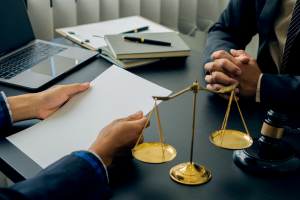
Legal defenses against domestic violence allegations are as varied as the charges themselves. First, factual innocence is possible where the accused did not commit the alleged act. Evidence such as alibis, surveillance footage, or witness testimonies can corroborate this claim. Then, there's the aspect of insufficient evidence. This happens when the prosecution cannot prove guilt to earn a conviction. What do you need to know?
False accusations of domestic violence, while distressing, are not uncommon. They may stem from various motivations. Examples include custody disputes, revenge, or jealousy. In heated moments, a partner might exaggerate or misconstrue events. This could lead to unwarranted charges. Knowing the motivations behind false claims can help in crafting a solid defense.
Misunderstandings can also play a significant role. An act might be perceived as threatening when no harm was intended. In other cases, mental health issues or external influences can lead a person to make false claims. The repercussions of false allegations are serious. This makes it vital to approach them with informed and vigorous legal defenses.
Self-defense is a valid legal argument against domestic violence charges in many cases. If an individual believed they were in imminent danger, they could respond with proportional force. In this case, they might be absolved. However, proving self-defense is more complicated. It requires demonstrating the response was necessary and proportionate to the threat perceived.
Yet, self-defense claims can sometimes backfire if not presented correctly. A person might be seen as the aggressor rather than the defender. It's crucial to show clear evidence like injury records or witness accounts. They must align with the self-defense narrative.
Witness testimonies often play a pivotal role in domestic violence cases. A third party's account can either strengthen the accusations or bolster the defense. Witnesses provide an external perspective on incidents. They could potentially shed light on misunderstandings or malicious intent. Their importance cannot be underestimated, especially in he-said-she-said scenarios.
Yet, witnesses bring their biases and interpretations. Memories can be faulty, and events can be misremembered or misinterpreted. Therefore, witness testimonies can be influential. They should be evaluated critically, ensuring they align with factual evidence. They must also corroborate the sequence of events described by either party.
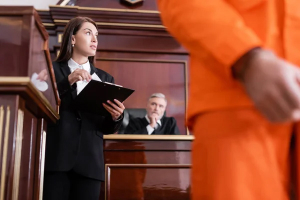
From the moment of accusation, the legal process is a roller coaster of emotions and procedures. Once accused, an individual may be arrested, followed by an initial court hearing determining bail. Post-arrest investigations delve deeper into evidence. They examine witness accounts and circumstances surrounding the alleged incident. Every stage requires the accused to be informed and prepared to ensure fair treatment.
After an accusation, the police might arrive to make an arrest based on preliminary evidence. Following this, the accused faces an initial court hearing. This process determines if there's enough evidence for a trial and, if so, whether the accused should be granted bail. Having knowledgeable representation during these proceedings is crucial to navigating the complexities.
A bail hearing can be the difference between freedom and jail time while awaiting trial. The judge considers factors like past criminal records, the severity of the accusation, and potential flight risk. A strong legal advocate can argue for lower bail or even release without it. This ensures the accused's rights aren't compromised.
Evidence is the backbone of any domestic violence defense. Every piece can sway the case's outcome, from text messages and videos to medical reports. A thorough review of all available evidence can reveal inconsistencies. They might even prove innocence. It's a meticulous process, and overlooking even a minor detail can be detrimental.
The nature of evidence varies. Some are concrete, like CCTV footage. Others, like personal testimonies, can be subjective. All forms of evidence must be scrutinized closely.
All evidence, testimonies, and arguments come to the forefront in the trial phase. Both the prosecution and defense present their cases, and the jury evaluates the information. The jury's role is critical. They must determine if the trial has proven the accusation beyond a reasonable doubt.
The defense's approach, tone, and arguments need to be persuasive yet factual. The end goal is to instill doubt in the jury's mind regarding the accusations, leading to a favorable verdict for the accused.
The rights of the accused are paramount in any legal proceeding. Everyone is entitled to a fair trial. This includes being assumed innocent until proven guilty. Remember, everyone also has the right to legal representation. Being well-versed in these rights is essential to ensure they aren't violated during the legal process. Awareness of one's rights and demanding they be upheld can significantly influence the trial's trajectory.
Additionally, the accused has the right to remain silent, not incriminating themselves. They are also entitled to know the charges against them and the evidence the prosecution intends to use. These rights, among others, form the bedrock of a fair legal system, ensuring that the accused is not unfairly disadvantaged or mistreated.
Protective orders, often issued in domestic violence cases, can have profound implications. They might restrict the accused from contacting the accuser or even returning to their residence. While intended to protect potential victims, they can sometimes be misused or based on exaggerated claims. Understanding the specifics of these orders and their implications is vital.
Challenging a protective order requires presenting a compelling case that the order is unnecessary or based on false premises. It's a delicate balance, ensuring the court that revoking or modifying the order won't lead to potential harm. Skilled legal representation is essential in these situations. A lawyer ensures that the accused's rights are not restricted unnecessarily.
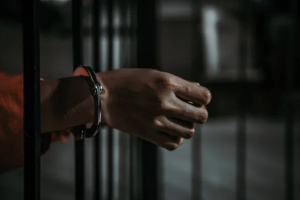
A domestic violence conviction can have life-altering consequences. Beyond potential jail time, it can affect employment prospects, damage reputation, and even limit housing opportunities. Moreover, it can influence child custody decisions and alienate family and friends. The weight of these consequences underscores the importance of mounting a solid defense.
In addition, convicted individuals might face mandatory counseling, restraining orders, or even lose their right to possess firearms. These penalties vary based on the conviction's severity, but all carry long-term implications. Reintegrating into society post-conviction becomes a challenge, making it imperative to prevent such an outcome in the first place.
Financial penalties can also be significant, from fines to compensation to the alleged victim. These monetary consequences, combined with the potential loss of employment, can create a substantial financial strain. It's yet another reason why a thorough, evidence-based defense is crucial.
Having experienced legal representation can be the difference between acquittal and conviction when faced with domestic violence accusations. An experienced lawyer understands the ins and outs of the law. They can examine the intricacies of evidence and the strategies to counter the prosecution's claims. Your attorney can ensure the accused's rights are upheld at every step.
Moreover, experienced lawyers bring a wealth of knowledge from past cases. They can anticipate the prosecution's strategies. Then, they can counter with compelling arguments and present evidence persuasively. Their experience allows them to approach cases with a higher level of expertise. Your attorney is instrumental in securing a favorable outcome.
Even after a conviction, hope isn't lost. Legal avenues like expungements exist, which can seal or erase the conviction from public records. This can significantly mitigate the conviction's repercussions. But not all cases qualify for expungement. You should reach out to us as soon as possible to discuss your options.
Other post-conviction relief options are available. Examples include appealing the conviction or seeking a sentence reduction. Each option has its criteria, procedures, and potential outcomes. Even after the trial ends, you need a skilled lawyer who will consistently fight for your rights.

Facing accusations of domestic violence is a harrowing experience. It can be filled with uncertainty and fear. But remember, a charge is not a conviction. At The Law Offices of Frances Prizzia, we're committed to protecting your rights. We guarantee your story is heard and you receive the best defense possible.
We understand domestic violence laws in Orange County and have a track record of successfully defending our clients. Don't face this ordeal alone. Reach out to us, and let our experience be your shield in these trying times.

Client Centered Approach

Reputation by Excellence

Experience

Innovative & Determined

You're Not Just Another Client

AVAILABLE FOR YOU NOW
"*" indicates required fields